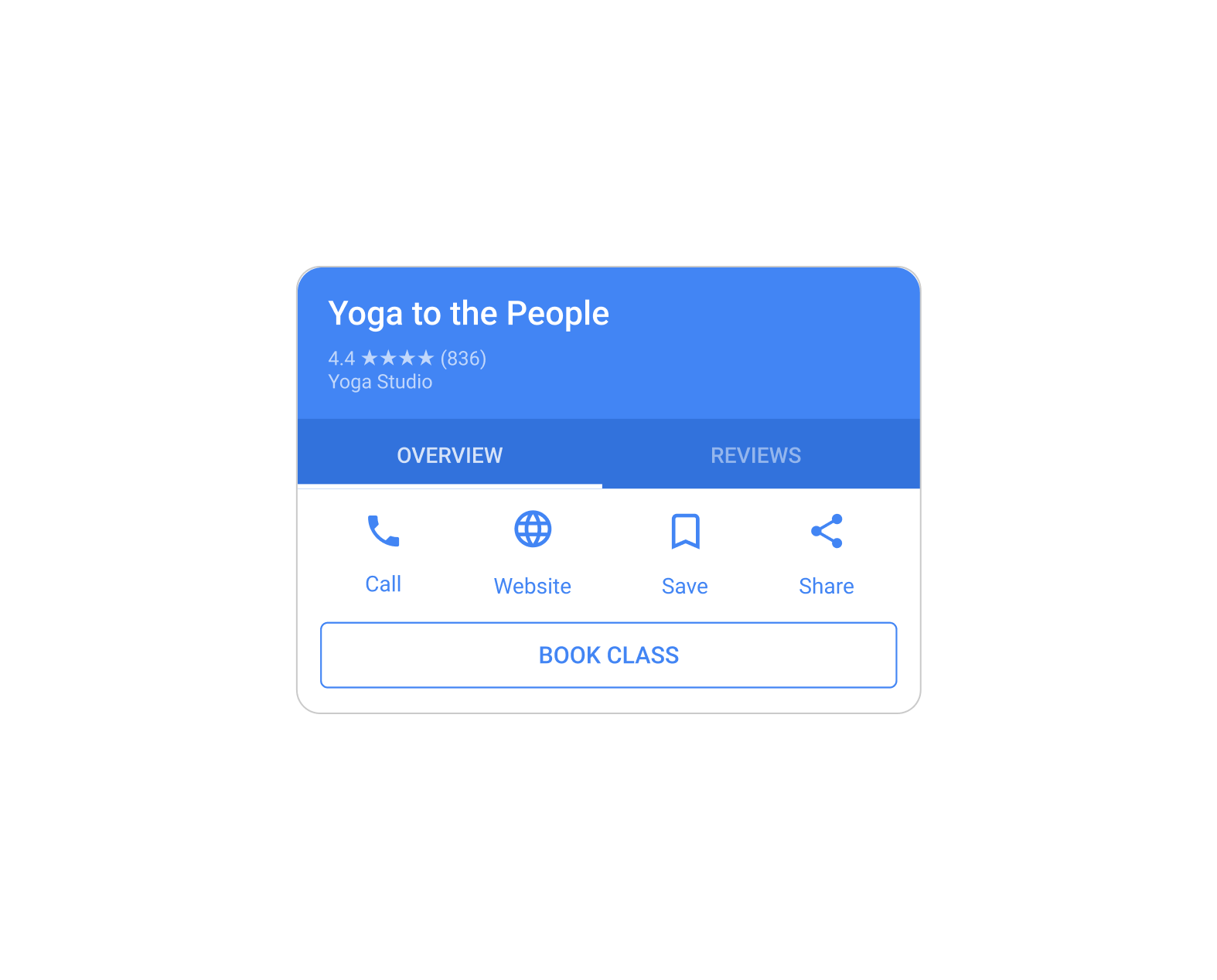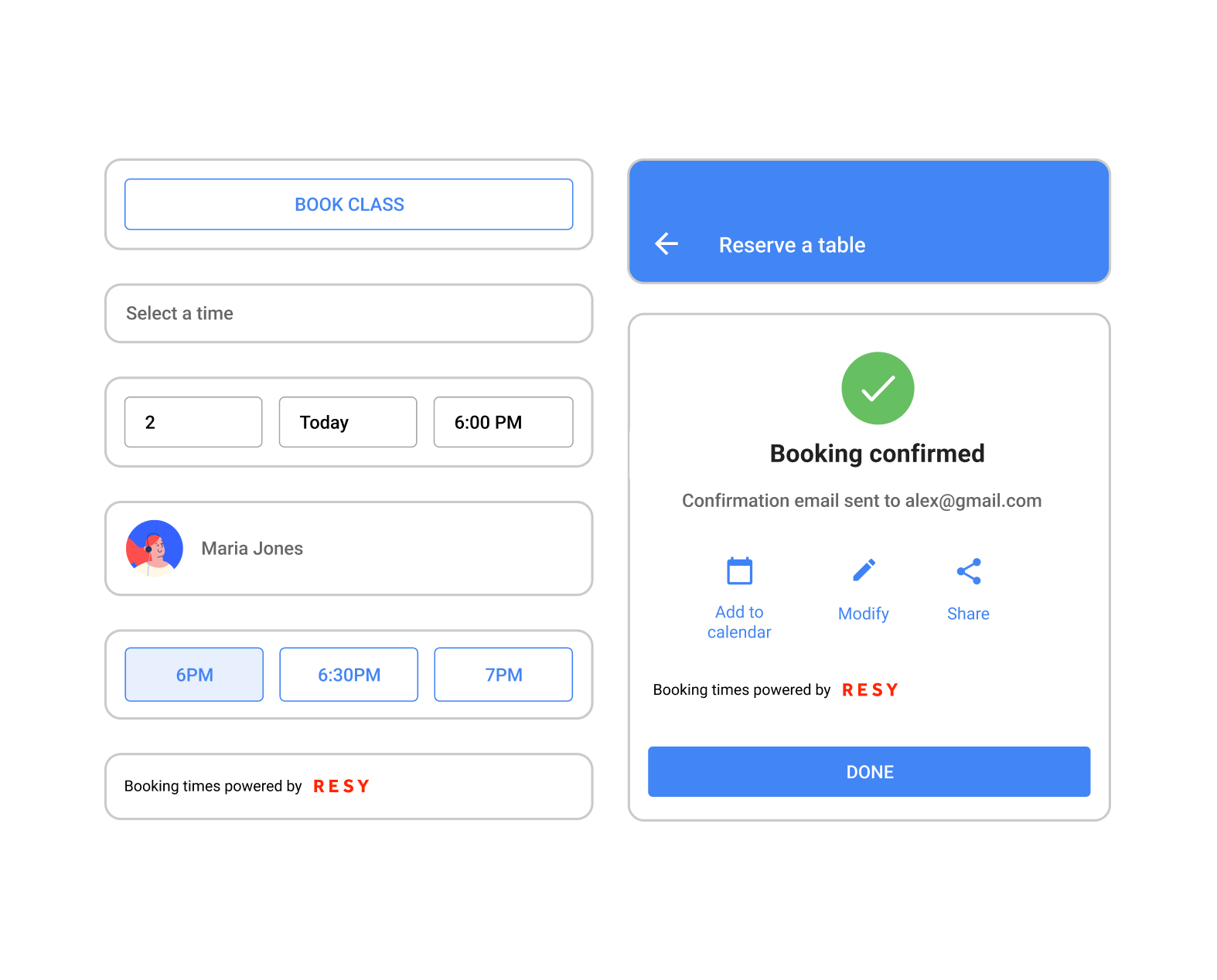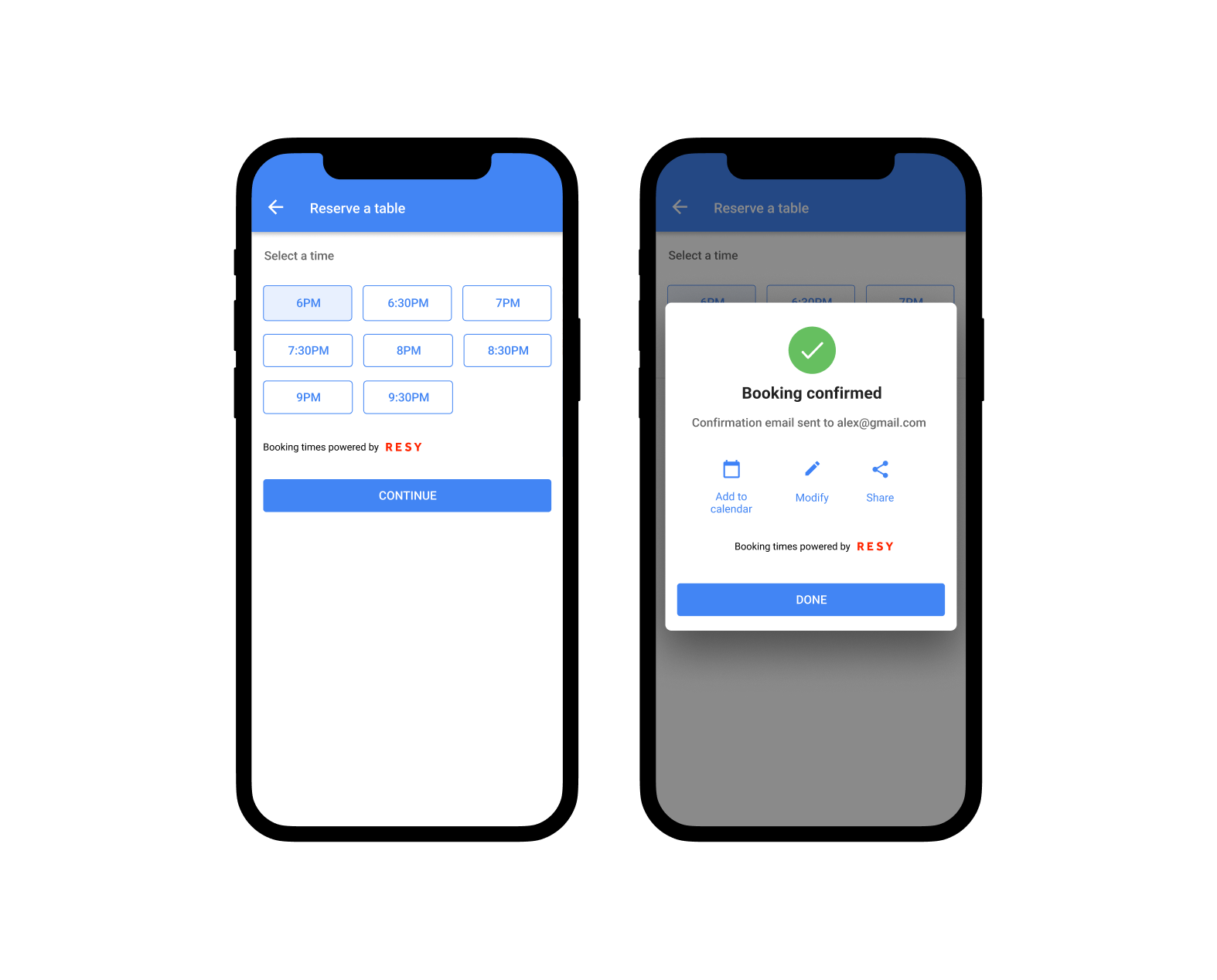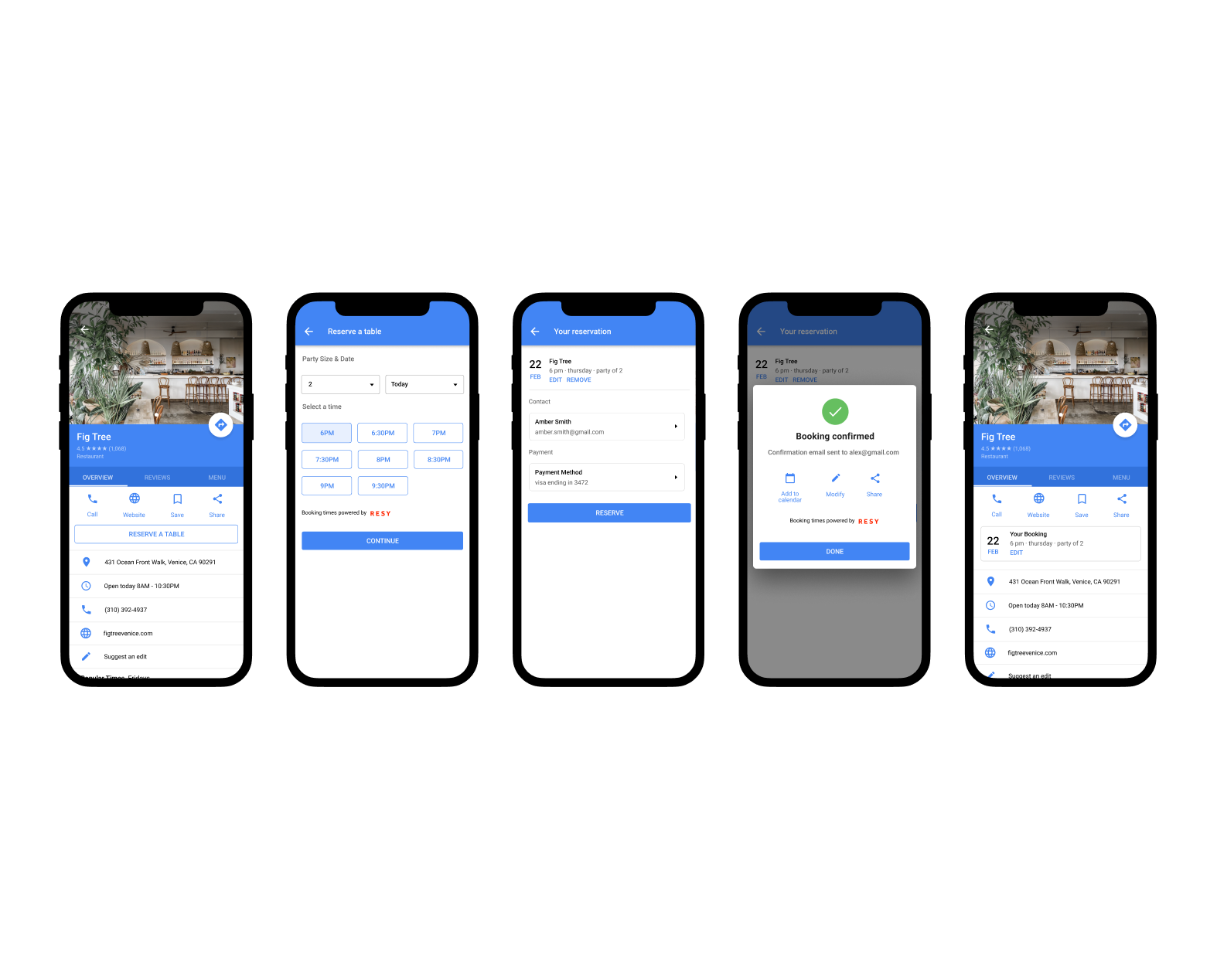A while back, I worked on a Google project that aimed to make local reservations easier through Google Search and Maps. This case study highlights our collaboration with Mindbody and Resy to support bookings across various sectors like dining, salons, and fitness.

Role
- Lead Product Designer: I led and collaborated with another designer, Danny Balgley.
- Cross-functional Collaboration: Worked closely with product managers, engineers, researchers, data science and several partner teams between Search and Maps.
Impact
- Shared Framework: Successfully rolled out a shareable system powered by Mindbody and Resy for partners and users, standardizing components into Sketch-based UI Kits for broader use.
- Improved Local Queries: Increased both mobile and desktop local search engagement and streamlined the booking process for users and partners alike.
- 3-Step Booking Process: Created a simple in-app experience to discover and book services at a variety of local places.


Problem
- No framework: A flexible system to manage a growing volume of local traffic and reservation-related queries.
- Poor Booking experience: Existing UX highlighted the need for a user-friendly booking experience that could scale between external platforms like Mindbody and Resy.
Why can’t I just make any type of reservation right from the Google listing page?


Research
- Competitive Analysis: Studied patterns from competitors like Resy and OpenTable to identify successful strategies for handling reservations and local searches.
- User and Partner Needs: Working with Researchers and Data Science to conduct extensive studies, including surveys, café studies, and rapid user studies with interactive prototypes, leading to insights into user behavior and preferences for booking experiences.
- Accessibility: contrast ratios and readability played roles in the visual design.
- Design System Constraints: Analyzed the growing Material Design System to ensure our framework was accessible and scalable across diverse local verticals such as dining, fitness, beauty, wellness, hotels, events, and services. What could be leveraged, what couldn’t. This meant working with visual design leads and core search to audit and assess what was needed for an ideal experience.


Hypothesis
Given the heavy volume of reservations and bookings, we felt that by providing a seamless an-app booking experience, we hope to simplify this experience for users and in turn drive local traffic.
Guiding Principles
- Simple and Scalable: Developed a text-only approach for entry points within the place sheet to enhance customization and localization, moving away from icon-driven actions.
- End-to-End: Partnered with services like Mindbody and Payments to create a seamless booking process integrated directly within Google Search and Maps.
- Scalable & Future Ready: Launched a mobile-optimized MVP supporting both web and mobile on iOS and Android, laying a foundation for future integrations and enhancements.


Solution
- Contextual placement: Provide users with the right actions when they need them most, on the place listing page.
- Contained Experience: Provide users with a seamless way to complete a booking process without leaving Google.
- Leverage Design Systems: Support several verticals and faster iterations by using a kit of like components across Dining, Salons, and more.


Sequencing
End-to-end support was initially needed for existing Mindbody and Resy partners across top local verticals like Dining, Salons, and Fitness Studios. Scaling out to new partners, verticals, and surfaces over time.


Conclusion
So that fresh haircut or palm tree-green mani is only a couple of taps away. By addressing user and partner needs through research and thoughtful design, we laid the groundwork for a comprehensive and efficient local booking system on Google Search and Maps.
Reach out to learn more!
